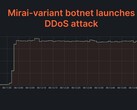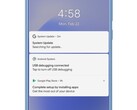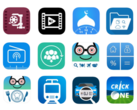Researchers at AT&T's Alien Labs recently uncovered Botenago, a malware program that's written using Google's open source Golang coding language. Botenago leverages over 30 different exploits, putting a very wide range of routers and IoT devices from across companies at risk. Alien Labs estimates that millions of devices could be at risk right now from Botenago.
The malware currently has a very low detection rate with popular antimalware software solutions - fewer than 10 percent of the 62 most popular antivirus solutions actually detect Botenago. The newly discovered malware isn't the first to be written using Golang. An Intezer report indicates that 2020 saw a 2000 percent increase in pieces of malware code that were written in Golang, possibly because Google's coding language makes it easier to compile for multiple platforms, from mobile to Windows and beyond.
The Alien Labs report indicates that Botenago could be a concern for large businesses - it could be used to gain access to networks, allowing hackers to carry out DDoS attacks, disrupting services.
Protect yourself from new malware threats with a 2 year subscription to AVG 2021, available here.













